Standard Motorcycle in Orlando. Cerberus Moto in San Diego. Moto Guild Philly and Moto Guild Chicago. Dunn Lewis in D.C. and Moto Works in Denver. What do these DIY (do-it-yourself) motorcycle garages have in common? They’ve all closed their doors for business.
DIY repair shops offer customers access to lifts, machines, and tools under hourly rates or under monthly membership plans. Most garages also provide services such as educational workshops and bike storage. Often treated as a community space, shops tend to feature peripheral businesses such as salons or cafés.
During the mid-to-late 2010s, this business model peaked in popularity, with DIY moto garages popping up in major cities across the country. The post-pandemic economy, however, has been less hospitable to such ventures.
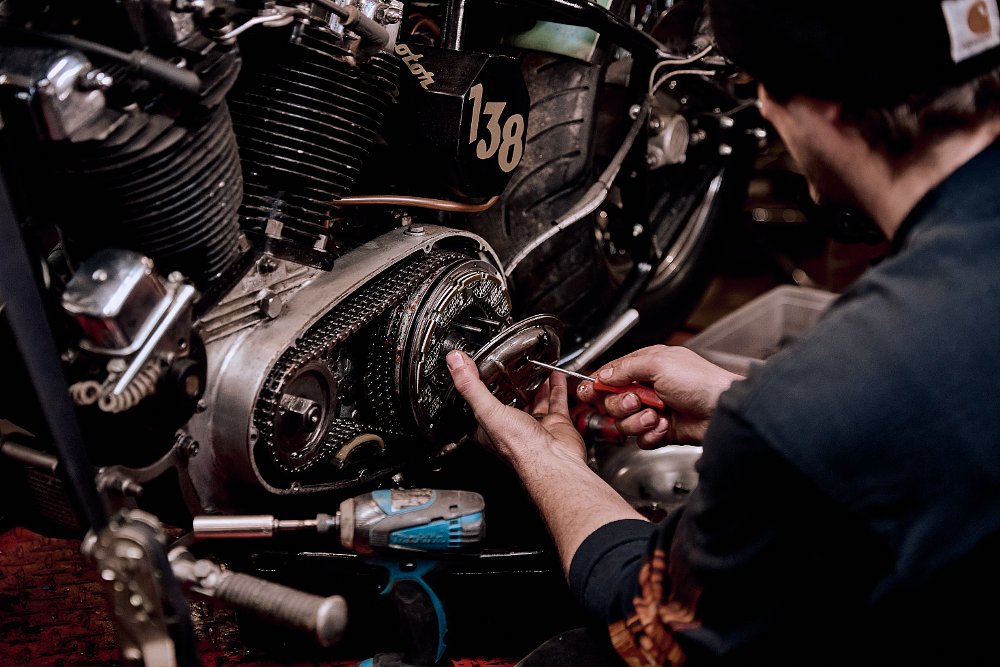
In recent years, numerous establishments have transitioned back to traditional repair shops or shut down altogether. To better understand the current state of what once looked like the next big trend, I spoke with past, present, and future DIY shop owners. The snapshot is one of struggle and hope.
Closing time
Seven years ago, Jeff King opened Moto Republic in the Eagle Rock neighborhood of Los Angeles. Like many DIY shop proprietors, King founded Moto Republic with a clear mission in mind.
“People are intimidated by working on their motorcycles. They’re afraid to break things,” King explained. “I wanted to empower people to learn to work on their bikes. I wanted to teach.”
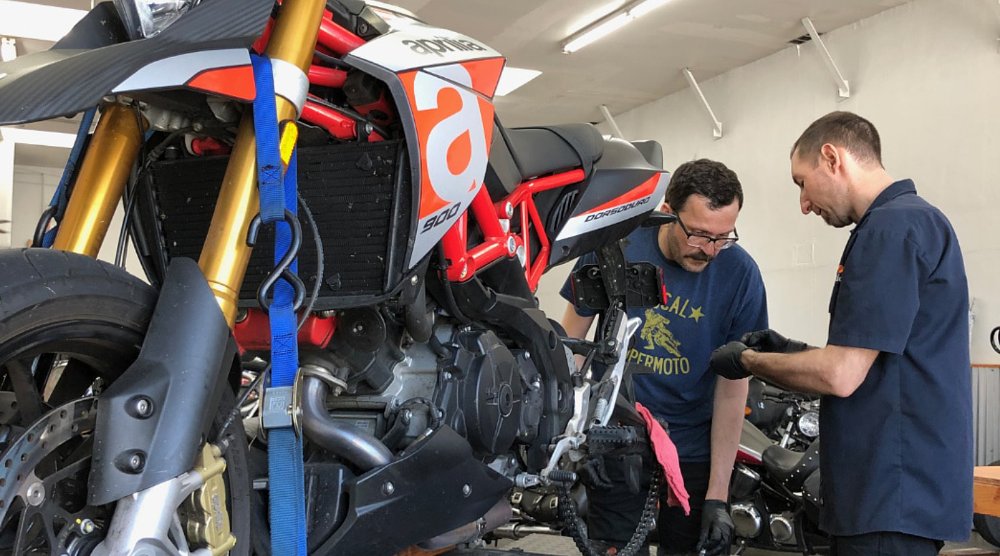
To turn worrywarts into wrenchers, Moto Republic regularly hosted weekend workshops. The introductory courses functioned as a “gateway drug” for DIY-curious customers. From performing an oil change to printing 3D parts, the curriculum served beginners and custom builders alike.
King made sure that tools (or lack thereof) were never a barrier, either. Whether your project required electrical or metal work, JIS or SAE, a Ducati single-sided swingarm wrench or a Harley belt-tensioning tool, Moto Republic made it available. Members even gained access to advanced machinery like the shop’s vapor blaster and sandblasting cabinet.
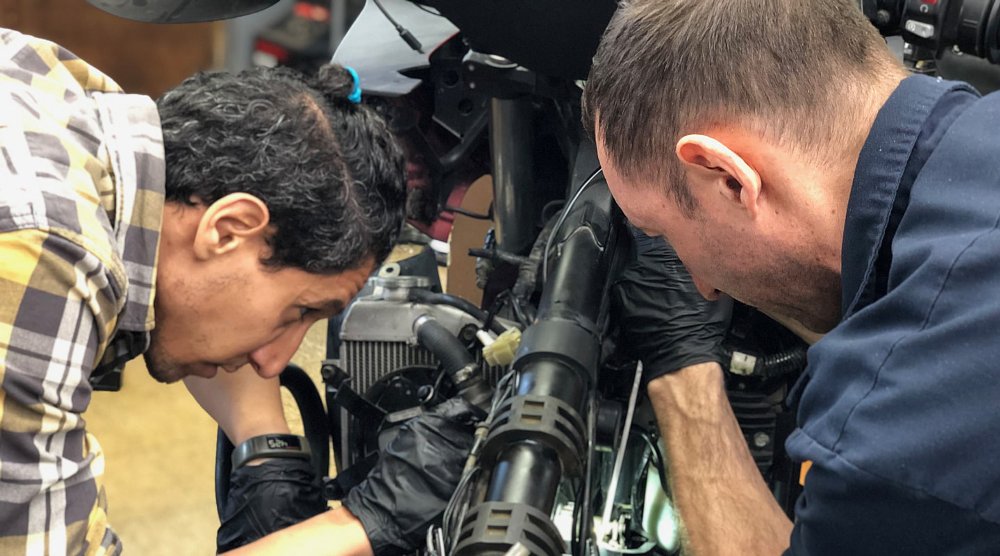
Despite shelves full of professional-grade tools, many patrons left the work to Moto Republic’s professional-grade mechanics.
“What I was really shocked by was how many motorcyclists weren’t willing to work on their bikes,” King admitted. “When it comes time for a repair or maintenance, I’d say 19 out of 20 motorcyclists would rather pay for it.”
Moto Republic’s full-service department gladly met the demand. With certified mechanics performing the tasks, clients paid higher charges for even simple procedures like turn signal swaps. Those jobs helped keep the business afloat, especially as the DIY enterprise struggled to turn a profit.
“The DIY portion is awesome. It’s why I’m here, but it doesn’t make any money,” acknowledged King. “I funded it by having a whole other shop just do retail repairs.”
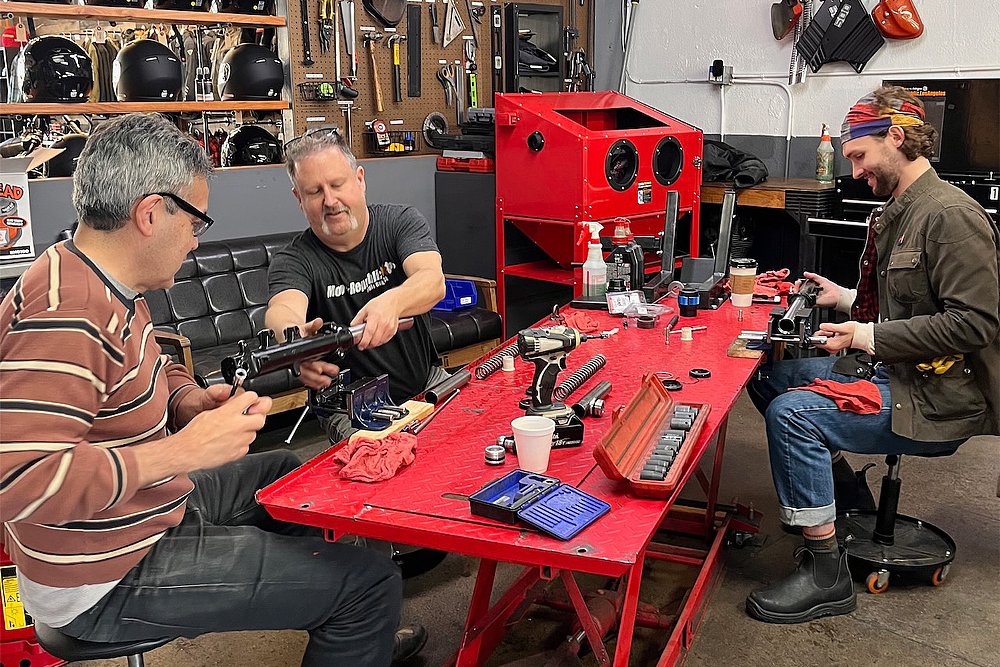
The service department couldn’t carry Moto Republic through every rough patch, though. Dwindling parts supplies and a shortage of qualified mechanics soon posed new hurdles for King to clear. Rising insurance costs only exacerbated the situation. According to King, insurance rates for his DIY garage cost three to four times as much as comparable policies for conventional repair shops.
Even with no incidents on Moto Republic’s record, the company’s liability insurance doubled from one year to the next. It wasn’t unusual for King to “switch carriers every other year.” After fighting that uphill battle for nearly a decade, King finally called it quits, shuttering Moto Republic in December.
Undeterred, the businessman plans to introduce “Moto Republic 2.0” at some point down the line. King is hopeful that backing from a corporate sponsor will make his business more sustainable the second time around. Because, as he puts it, a DIY garage is “too difficult to make money at but it’s too great not to do.”
New beginnings
Not all community moto garages close under the same circumstances. Between 2014 and 2021, Brother Moto cultivated a strong following in Atlanta. Alongside the shop’s DIY maintenance and repair facilities, the workspace included a coffee shop and a retail merchandise store.
“Some of it was out of the necessity of needing another revenue stream,” Brother Moto co-founder Jared Erickson noted. “But, really it was: how do we encompass this into a lifestyle, third-place space that people want to come and hang out?”
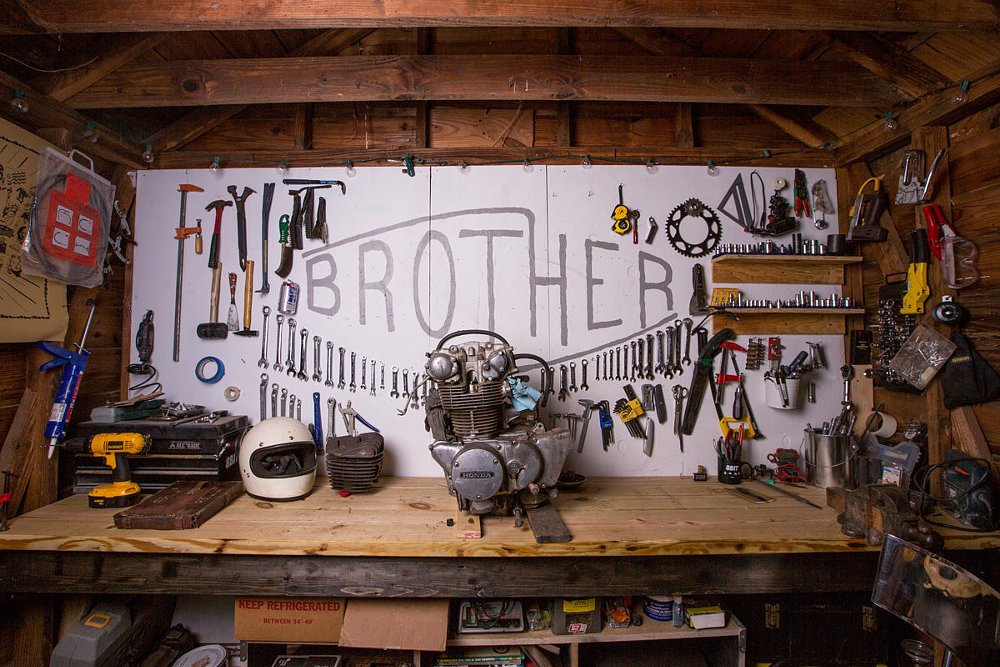
Though “coffee was a way of getting people in the door,” those ancillary businesses also required funds, resources, and labor. Add to that managing the DIY shop seven days a week, and burnout quickly set in for Erickson. By the time he broke his neck in a motorcycle accident, the time and effort invested in the business no longer seemed worth it.
“The cost of actually operating that business is a lot if you’re actually going to do it well,” Erickson said.
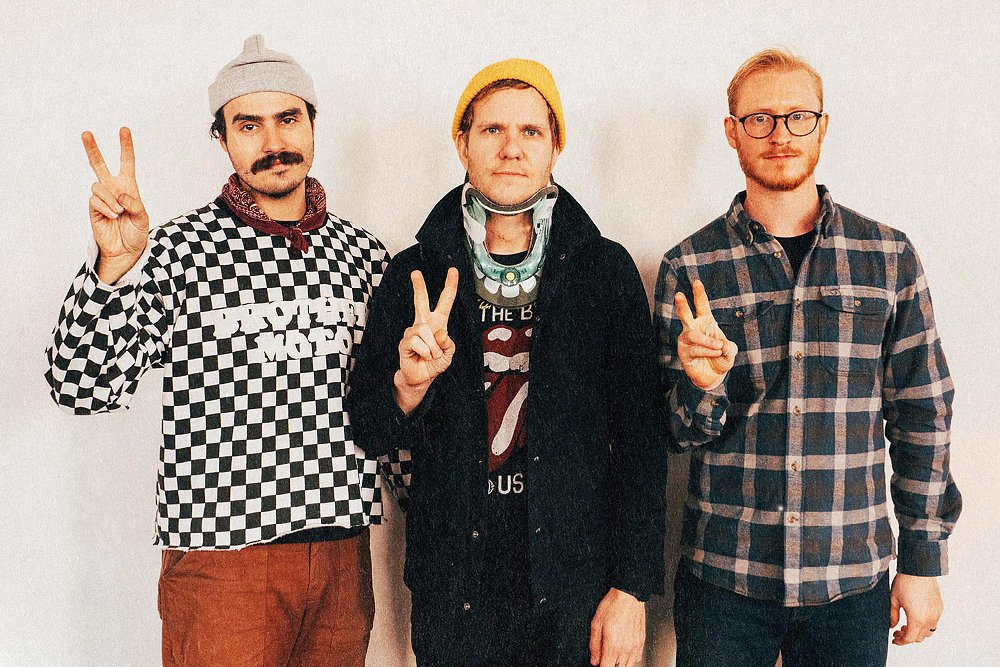
With the garage’s lease up for renewal during the pandemic, he thought it best to close Brother Moto, instead. The shutdown rocked Atlanta’s motorcycling scene, but a new community motorcycle shop, Bonus Family Garage, intends to open in the Atlanta area soon.
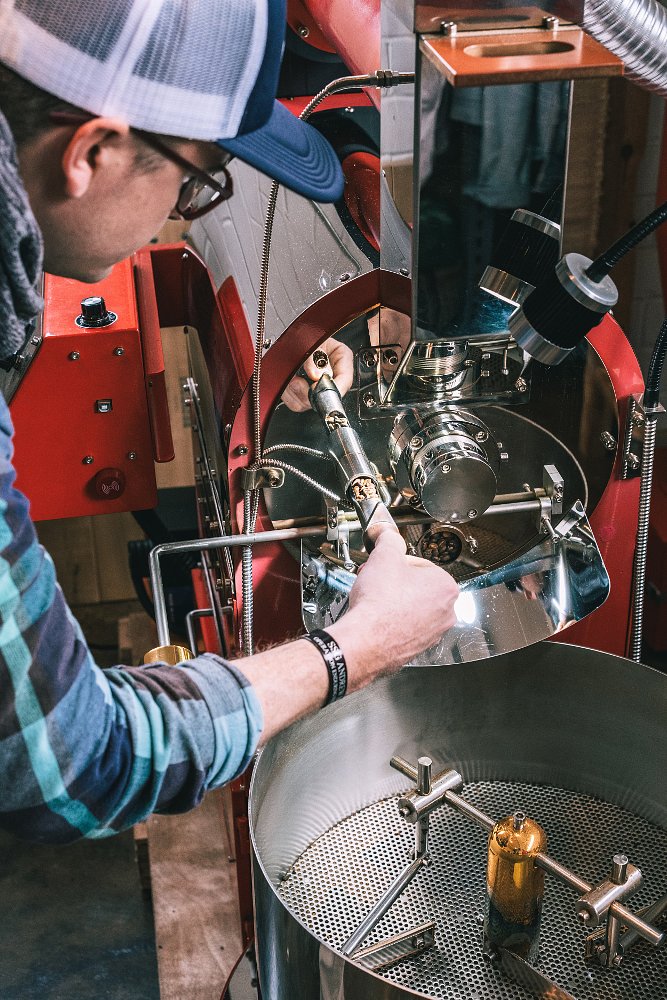
Bonus Family founder and CEO Miles Sager hopes to create a viable business by returning to the roots of the DIY concept. To do so, Sager partnered with a local coffee roaster to outsource café operations. The separate business not only delegates secondary responsibilities to a third party but the space leased by the café also serves as another source of revenue.
“It was just a lot for [Brother Moto] to handle an entire restaurant and the motorcycle shop,” Sager explained. For that reason, he’s making a conscious effort to “not take on too much”
That goes for the space itself, too. As opposed to Brother Moto’s 8,000-square-foot layout, Sager is searching for a 4,000-square-foot facility to house Bonus Family Garage. A smaller footprint also equates to lower rent, as the first-time shop owner aims to avoid “begging for people to join" as members.
Of course, Bonus Family Garage will need to open its physical location before implementing such corrective measures. Only then will we know whether Sager’s approach proves more successful than the community garages that came before it.
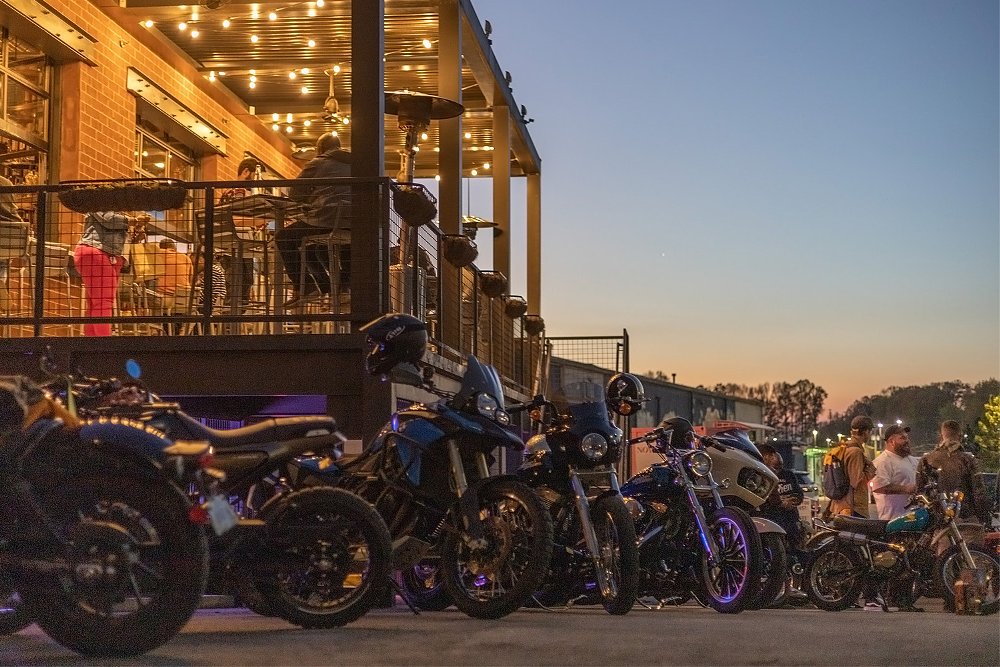
Build on
Legion Motorcycle Co. in Portland. Skidmark Garage in Cleveland. Moto Guild San Francisco. Hickory Union Moto in Kansas City and Motoshed Seattle. What do all these DIY repair shops have in common? Their doors are still open for business.
Spotting the highs and lows of the community garage trend is easy, but time-tested stalwarts forge ahead. A prime example is New York City’s MotorGrrl. Established in 2004 by Valerie Figarella, the Brooklyn-based shop is widely considered the longest-running DIY motorcycle garage in the nation.
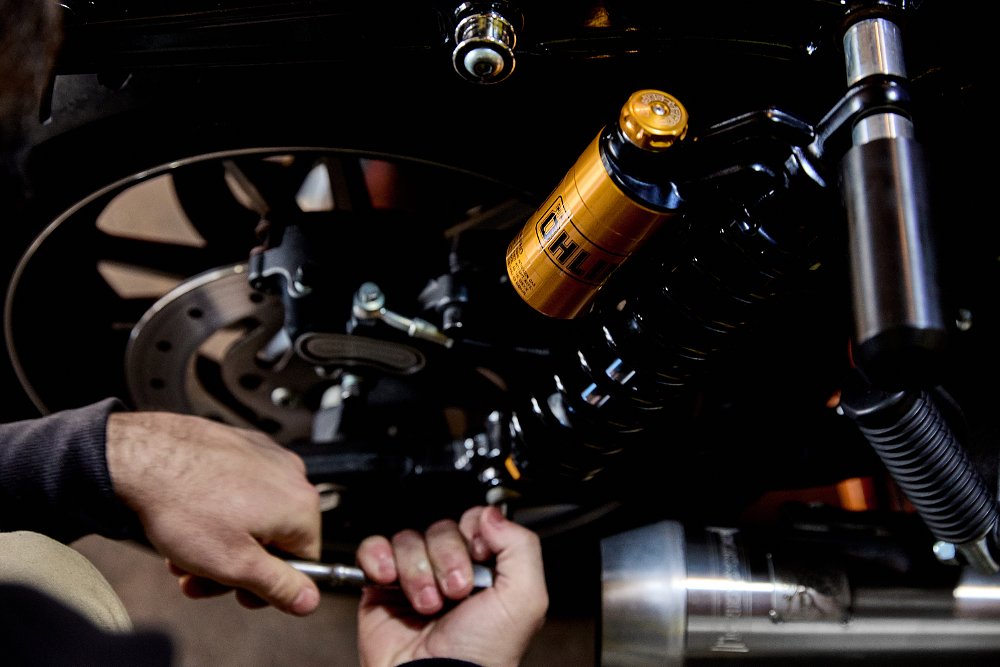
According to Figarella, MotorGrrl’s DIY business benefits from “a very good ratio of people that work on their bikes.” She only shares her space when it’s an “organic fit” too, such as a pop-up salon that only lasted several months during the pandemic. Even without supplementary revenue, even with NYC rental prices, MotorGrrl still stands, nearly 20 years later.
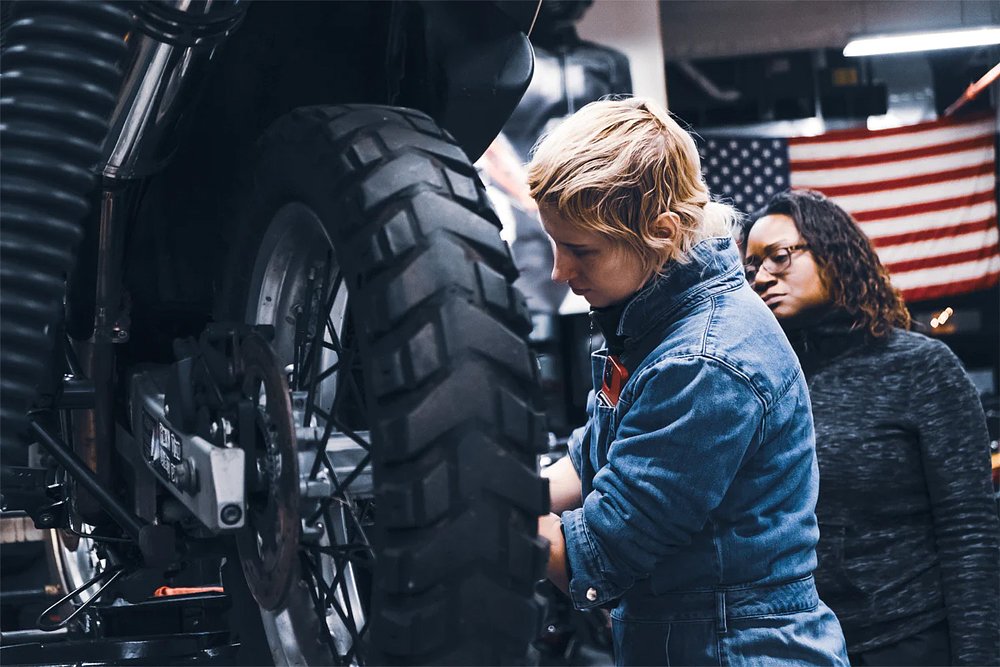
If Figarella’s two-decade run proves anything, it’s that no formula predicts a DIY garage’s success. Some keep the lights on with maintenance and repair services alone. Others supplement profits with a café, barroom, or salon. No matter the location, no matter the side businesses, an ample supply of dogged determination is required.
As King remembered, “I had hoped to make money from this, and I downsized to ‘I would like to make a living doing this,’ and now I’ve decided there’s just no way to do it" without some sort of sponsorship.
Despite surviving an economic recession and a global pandemic, the end is never out of the question for MotorGrrl, either.
“Well, I’m getting old,” Figarella acquiesced, “so I’m hoping that I end on my terms and my terms only.”
Until then, MotorGrrl persists, with the mission to “educate people” and “bring community together.” Sometimes, that may be the only factor that keeps a DIY garage open for business.











